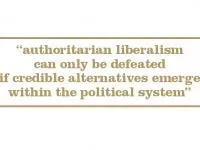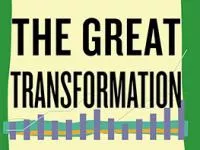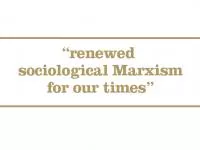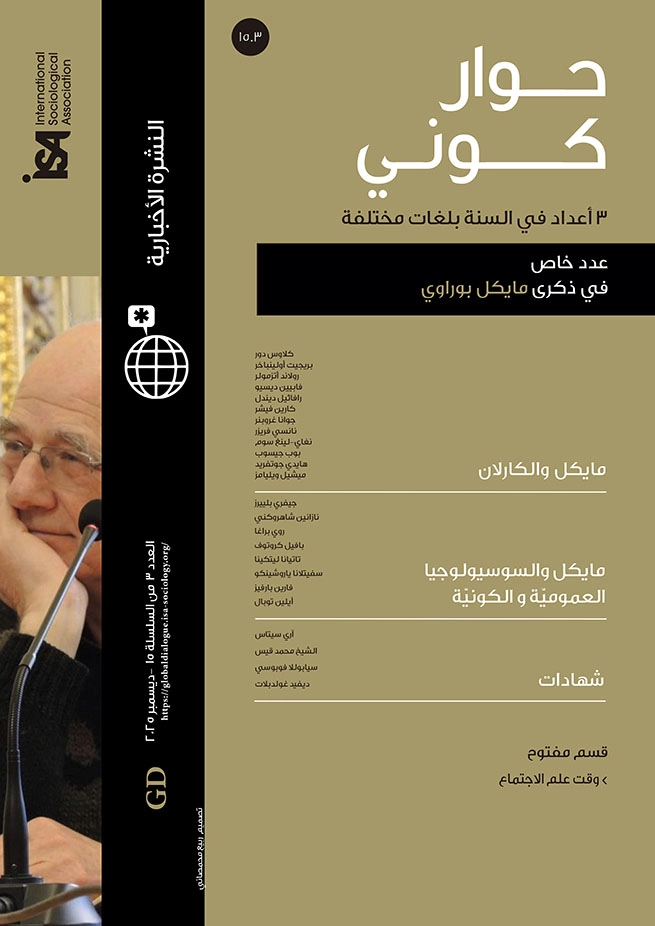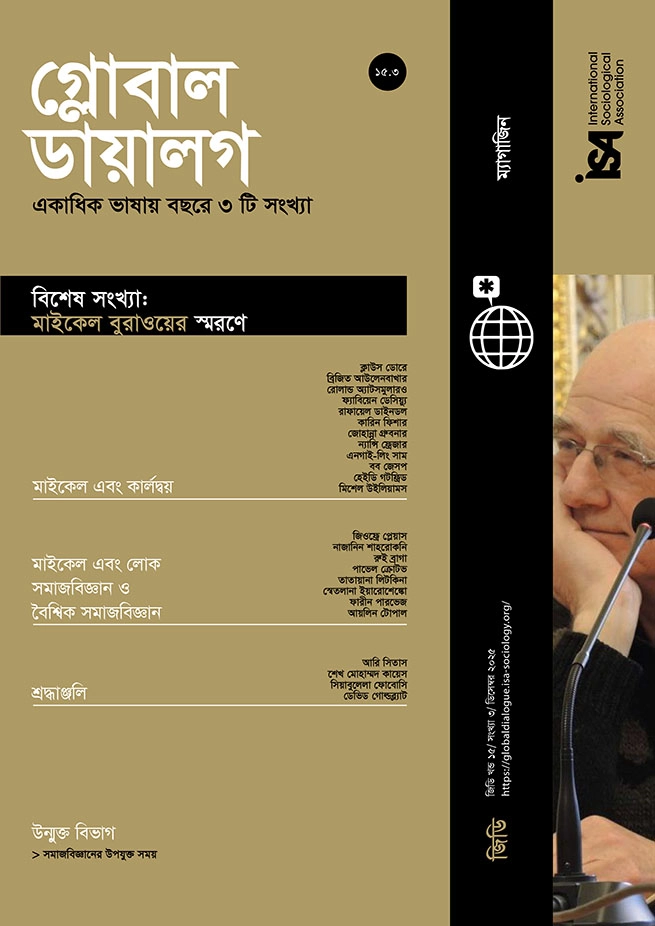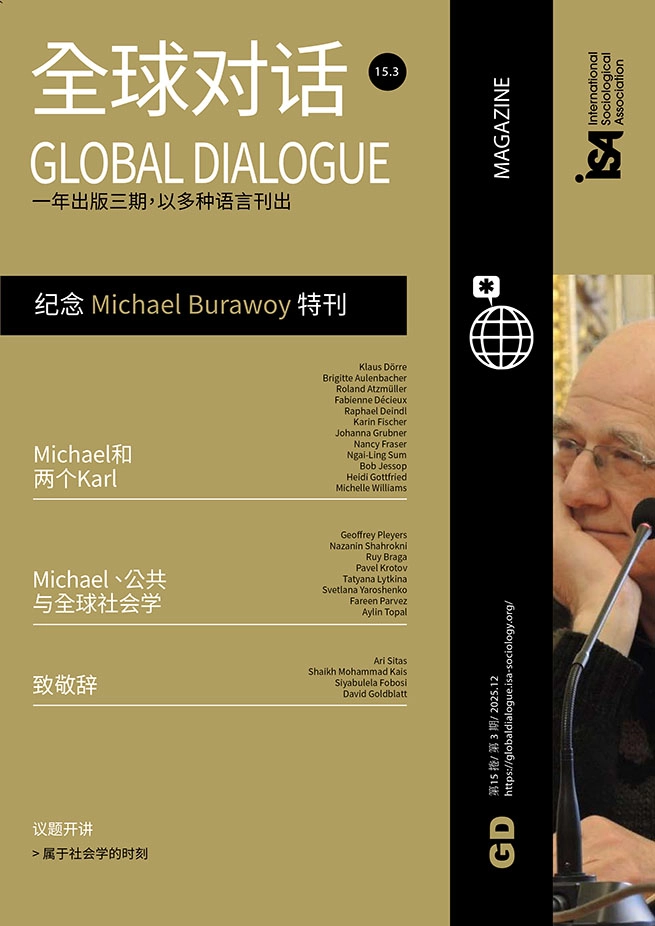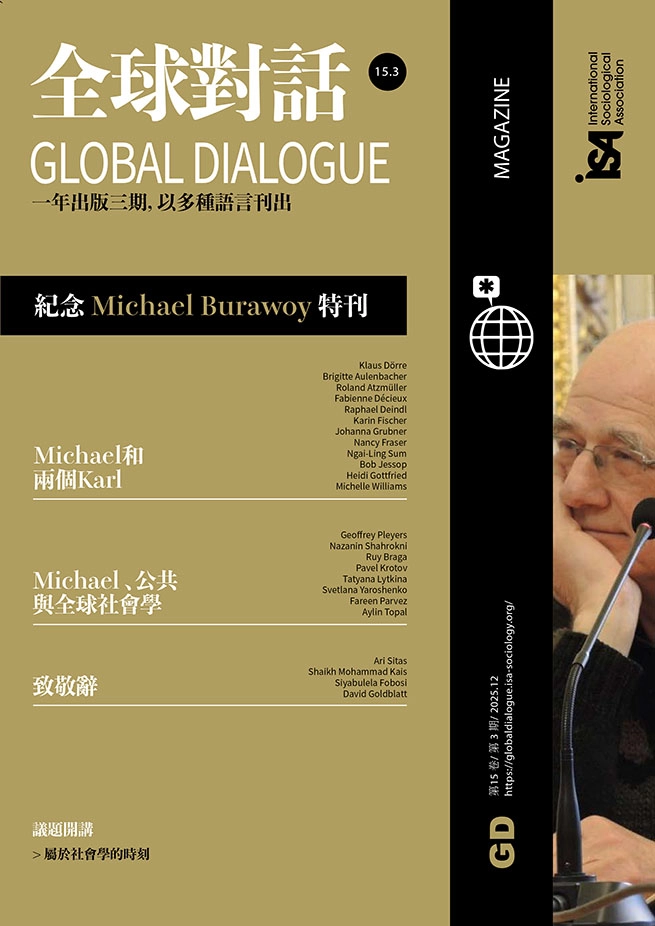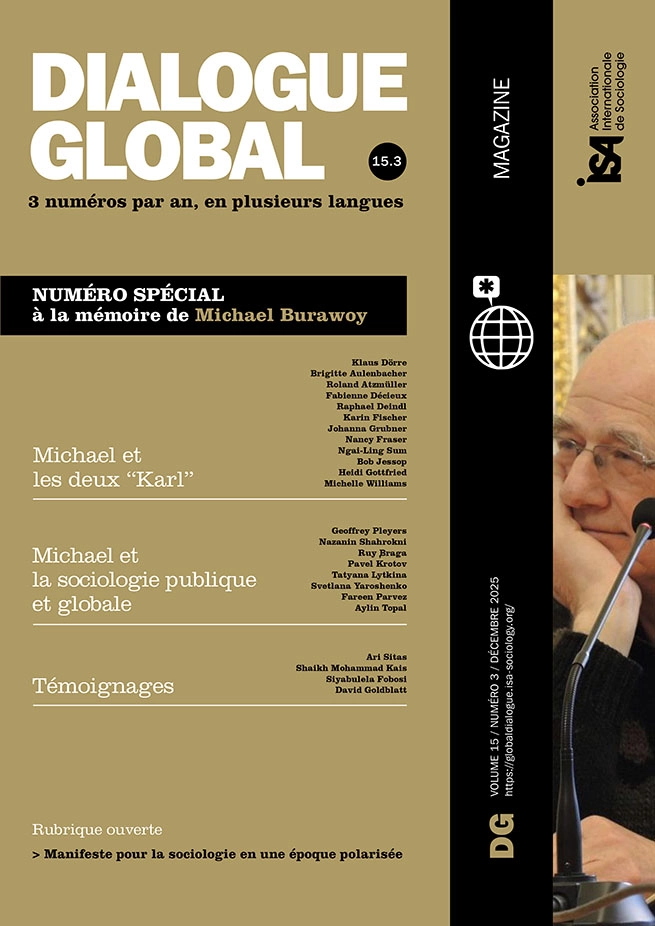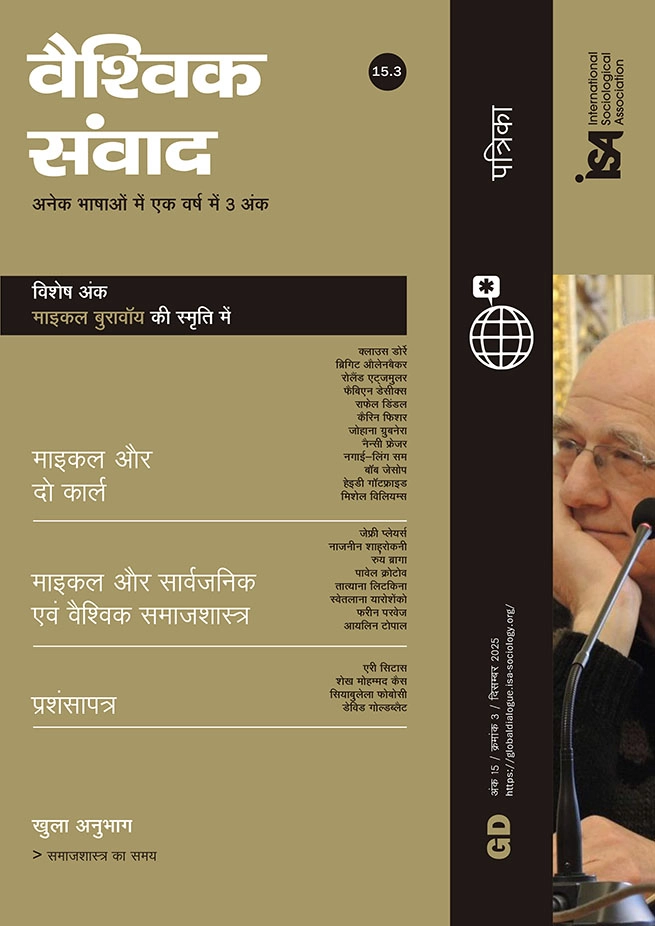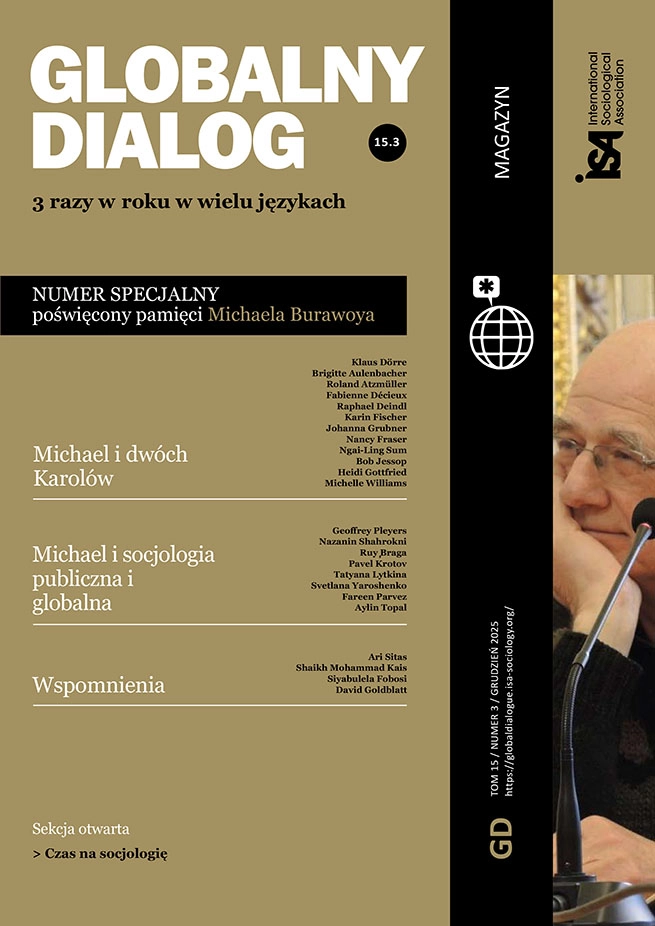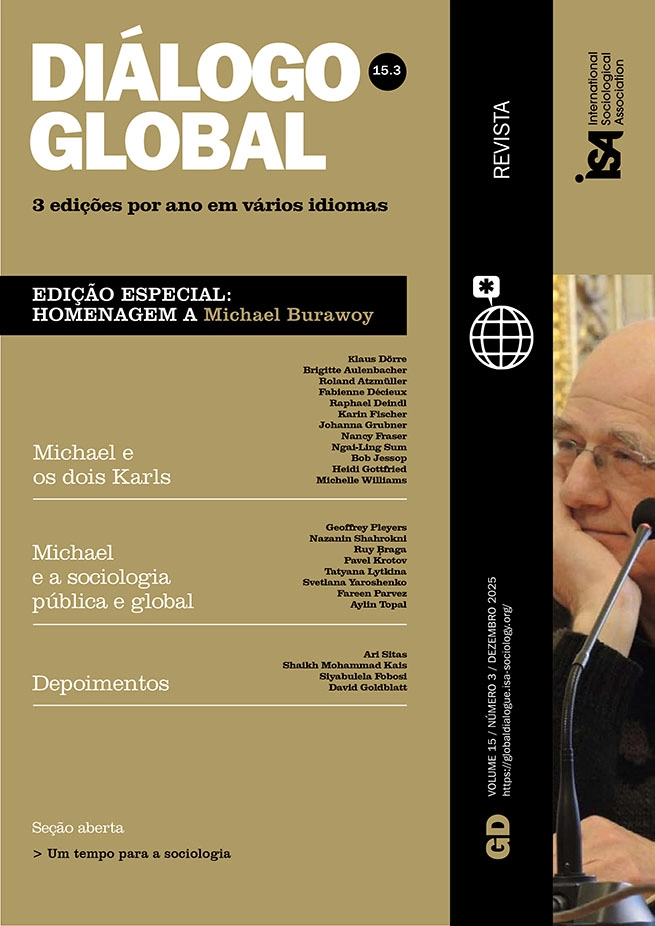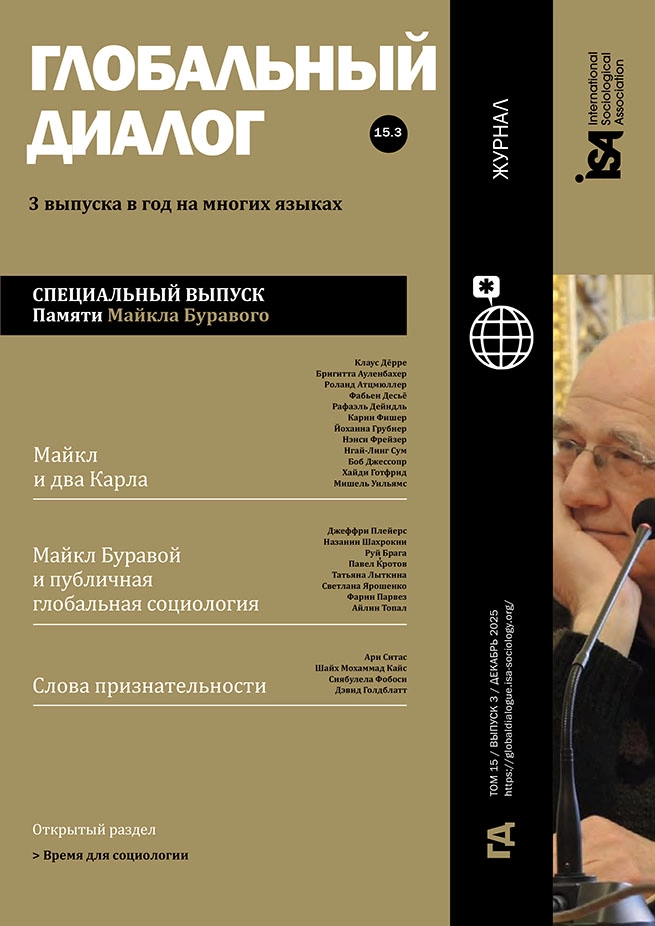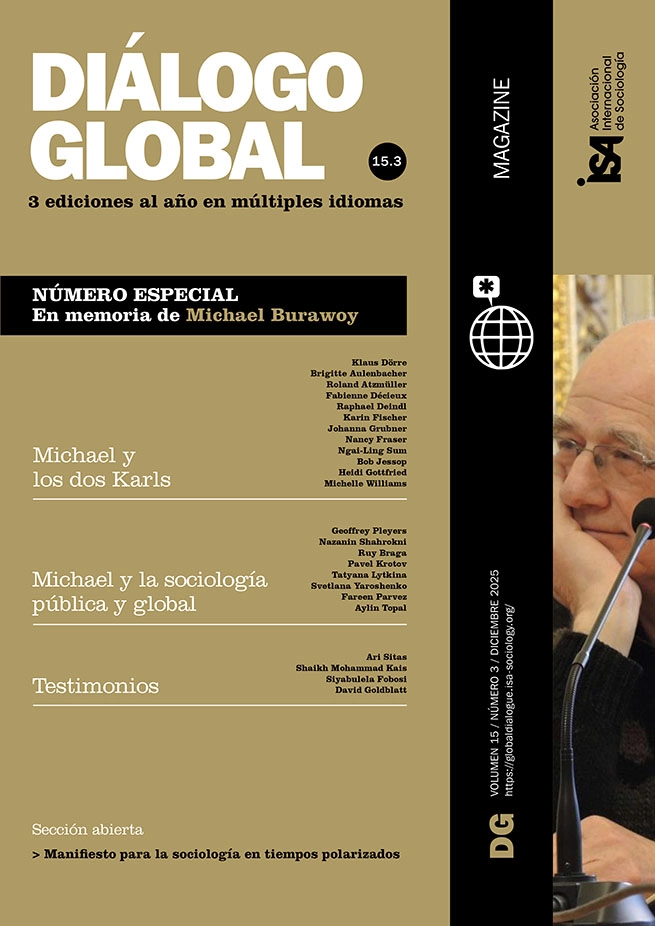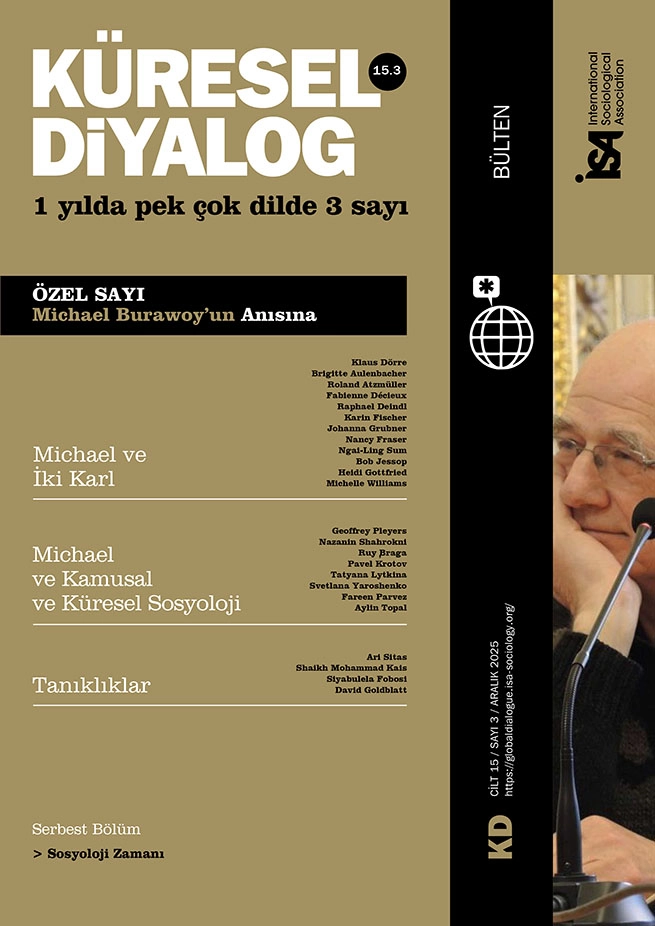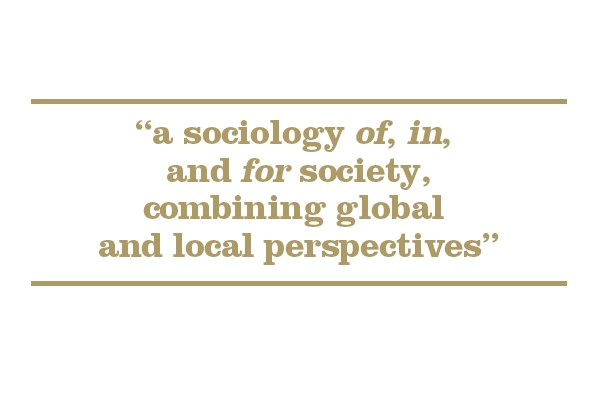Michael Burawoy’s sociology is Marxian, Polanyian and so much more. This article reflects on his most impressive and inspiring work, culminating in his analysis of twenty-first century market capitalism.
Michael and Karl Marx
The breadth and persistence of Michael’s work are difficult to summarize in just a few words: one might get lost in a bundle of intriguing trajectories. No wonder he described his long-standing engagement with the development of labor processes as the “Odyssey of a Marxist Ethnographer” or understood his role for the renewal of (a sociological) Marxism as that of a “traveling interpreter”.
Michael’s theoretical perspective encompasses a comprehensive grasp of debates within Marxism as well as (classical) sociology. His work on labor processes is engaged with, among other things, Marxist assumptions about the crisis-prone nature of capitalism, the significance of class struggles, the establishment of the ruling class’s hegemony in and through the factory, and the conditions for revolutionary transformation. However, from the outset, his uses of the Marxist theoretical tradition were determined by a critical approach to some of its general assumptions. His studies of labor processes demonstrated the necessarily variable ways through which the structural features of the mode of production are realized. This insight precluded any dogmatic application of theoretical concepts, whether in science or in political practice. His long-term perspective demanded that we grapple with the transformative dynamics of capitalism.
Complementing Karl Marx with Karl Polanyi
The fundamental transformation of capitalism since the 1970s, which Michael diagnosed as the “third wave of marketization”, and the end of “real socialism”, led him to shift focus toward the relationship between society and the market. This change underlies his conceptualization of sociological Marxism, drawing on thinkers as diverse as Antonio Gramsci and Karl Polanyi. For Michael, a sociological Marxism is transnational, aims to incorporate the experiences of decolonization and postcolonialism, accounts for the patriarchal fragmentation of societies, and recognizes the diversity of social struggles and potential forms of a post-capitalist society.
Michael’s ambition to reconceptualize the Marxist legacy “for our times” was also based on recognition that it must abandon theoretical certainties. Instead, what is needed is an egalitarian dialogue between critical social theory and science, and transformative social practice.
In particular, since the financial crisis of 2008, Michael drew more and more on Karl Polanyi’s masterpiece The Great Transformation. In his presidential address “Facing an unequal world” at the XVIII World Congress of Sociology in Japan, he presented his reading of Polanyi for today as well as the results of controversies and debates concerning public sociology, i.e., the tasks of sociology in times of fundamental crises. Reflecting on sociology became a key component of his Polanyian analysis of contemporary market fundamentalism and vice versa; both leading to what he called a “Polanyian global sociology”: a sociology of, in, and for society, strongly related to civil society and combining global and local perspectives.
Market fundamentalism as “lived experience”
Inspired by insights into transformative change in many countries, Michael’s interpretation of Polanyi’s “Great Transformation” was quite original. It impressively combined a historical and sociological reflection on the “movements” and “countermovements” of past centuries and the present. One of the most important parts of Michael’s Polanyian theory of market fundamentalism is the combined analysis of the three waves of marketization at the macro- and meso-level, and of marketization as “the lived experience” of people in their everyday life. From a historical perspective, he showed that the market-fundamentalist commodification of the Polanyian “fictitious commodities” – land/nature, labor and money, to which he added knowledge – provoked “countermovements” in the form of struggles for labor, social and human rights, be they class-based struggles or demands for legal protection and regulatory frameworks.
Crucially, his perspective of “countermovements” of our times allows us to understand that everyday life experience stimulates different forms of social protest. In times of market fundamentalism, not only commodification but also processes of de-, ex-, and recommodification can lead to fundamental problems, especially for those excluded from market exchange due to unemployment or in the face of unprofitable and therefore ignored ecological problems. Far from romanticizing civil society – particularly amid increasing right-wing populism – the latitude of labor and social movements in the early twenty-first century represents for Michael a wide range of Polanyian “countermovements” that are central to the ongoing transformative change of capitalism.
Michael’s sociology of and for social movements
Building on Polanyi’s analysis, Michael argued that commodification is the defining experience of our time. Exploitation, though fundamental to any critique of capitalism, is often not consciously perceived as what it is – an insight Michael had already developed in Manufacturing Consent. In his “general theory”, the three waves of marketization are not viewed in isolation but understood as interconnected through a dialectical – perhaps even regressive – dynamics.
Michael expected the commodification of nature to play a leading role in the current phase. He stressed that an effective countermovement must emerge on a global scale, as only at that level can the destruction of nature and the global machinations of finance capital be meaningfully contested. Yet such a countermovement must overcome entrenched geopolitical boundaries, national constraints, and the short-term logic engineered by marketization.
Against naive optimism, Michael advocated an uncompromising pessimism. He drew on both Polanyi and Marx, combining Polanyi’s concepts of fictitious commodities and countermovements with a Marxian analysis of capitalist dynamics. Only through a careful examination of the material forces driving marketization can we begin to assess whether contemporary social movements are contributing to its intensification, intentionally or not, or to reversing it.
Missing Michael
Having been familiar with his sociology for years, we are looking back on a longstanding and enriching collaboration with Michael. We are grateful for the many opportunities to meet with him, to benefit from his work, to exchange ideas and collaborate, as well as for his intellectual generosity, his academic engagement and stimulating sense of humor. As a visiting professor at our university, Michael inspired the foundation of the International Karl Polanyi Society in Austria. As the founder of Global Dialogue, he invited us to contribute to this amazing magazine. Much more could be said. An outstanding thinker of our times has passed. We miss him.
Brigitte Aulenbacher <brigitte.aulenbacher@jku.at>, Roland Atzmüller, Fabienne Décieux, Raphael Deindl, Karin Fischer and Johanna Grubner, Johannes Kepler University Linz, Austria
